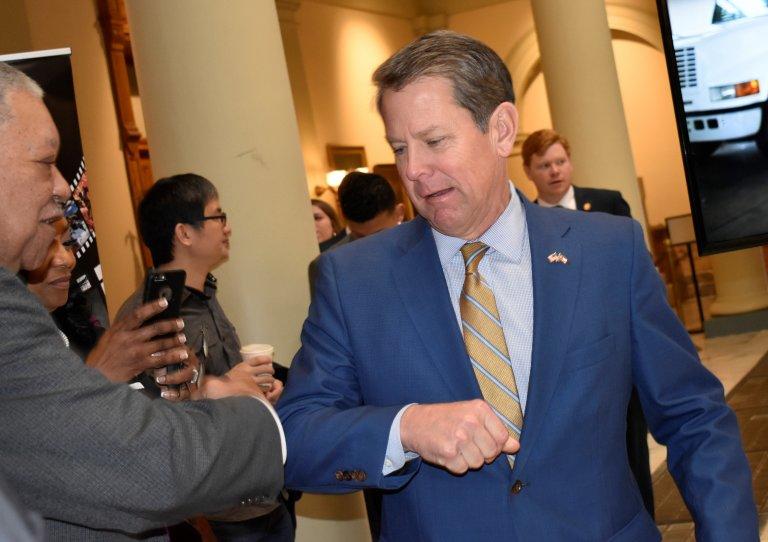
Caption
Gov. Brian Kemp greeted friends with an elbow bump at a March celebration of the Georgia film industry at the Capitol days before COVID-19 wreaked havoc on Georgia businesses, including film studios.
Credit: Ross Williams/Georgia Recorder

